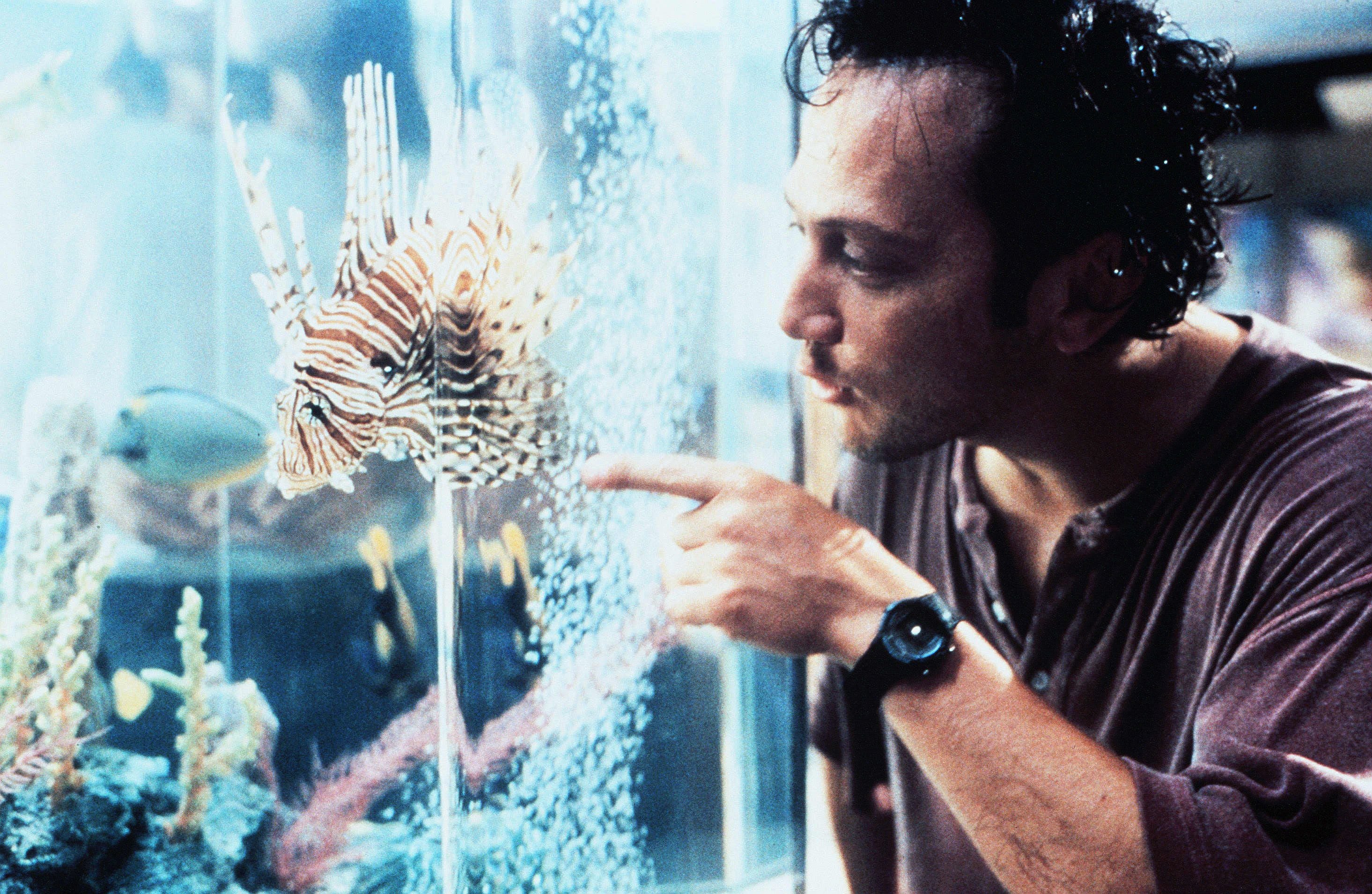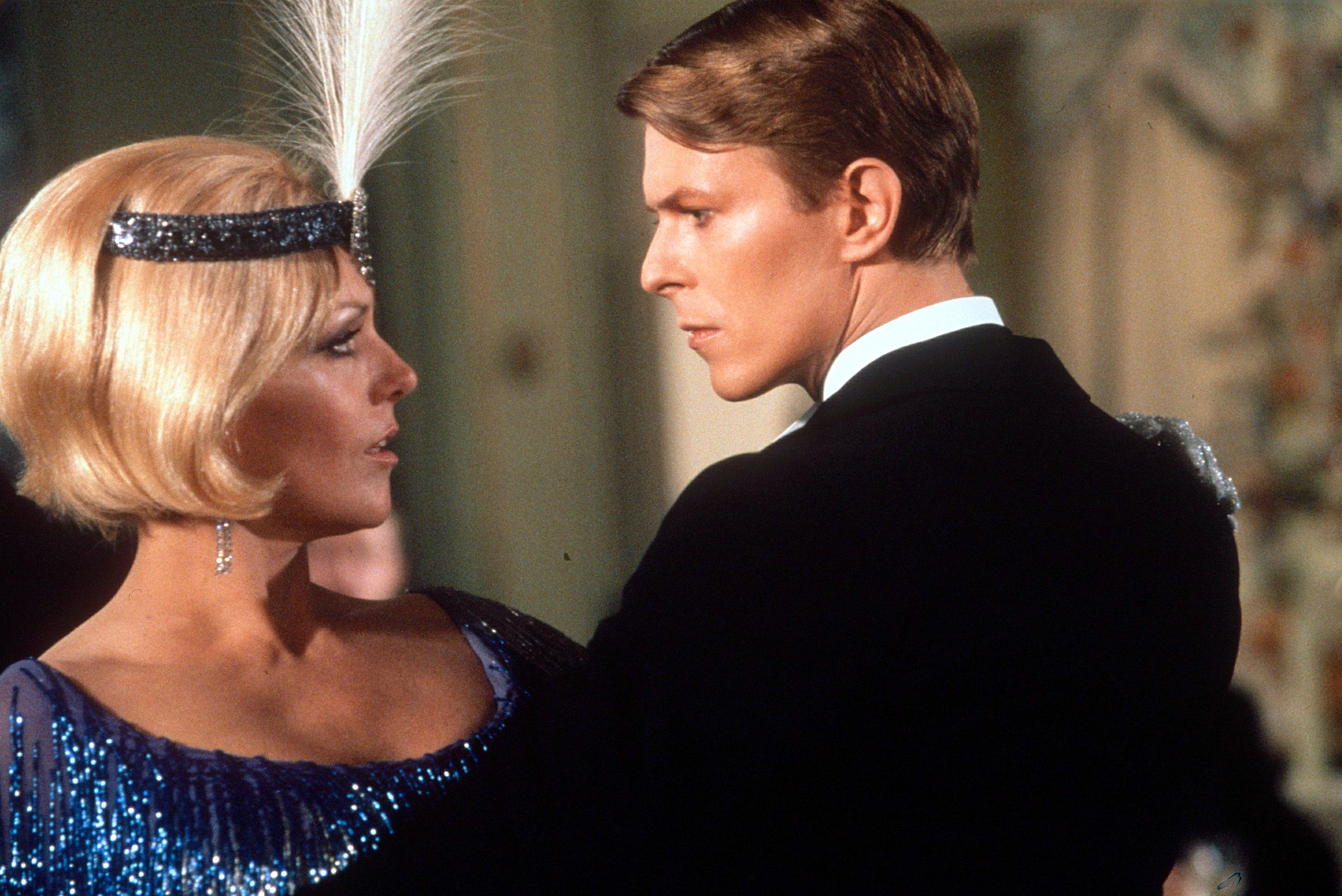Dream lovers: The changing face of male gigolos on screen
Many of cinema’s male escorts have been objects of ridicule or pity over the years. At last, writes Geoffrey Macnab, Dan Stevens claws back some much-needed dignity to the job in the new screwball romance drama ‘I’m Your Man’

To his one client, Tom seems almost the perfect man. He dances like an angel. His manners are impeccable. He is kindly, handsome and reasonably virile. If you want him to make love to you, he will do so. If you need him to clean up your apartment and put out the rubbish, he will do that, too. Brilliantly played by Downton Abbey’s Dan Stevens in Maria Schrader’s new Berlin-set screwball romance I’m Your Man (in cinemas next month), he is the sleekest male gigolo you will ever see on screen. He is also a humanoid robot. He has been programmed to anticipate every whim of the beautiful, lonely, middle-aged academic Alma (Maren Eggert). As he tells her, his algorithm is designed to “make her happy”.
Male gigolos have featured in films since the silent era. Rudolph Valentino, the former New York taxi-dancer who played sheiks and Latin lovers in Hollywood films of the 1920s, was one of the first. Like Tom in I’m Your Man, he knew how to tango. His brand of masculinity – sensitive, flamboyant, androgynous – made male critics of the era very uncomfortable. He wasn’t the rugged outdoor type and was therefore dismissed, in homophobic fashion, as a “pink powder puff”.
Gigolos ever since have been regarded with similar levels of suspicion. The Armani-clad male prostitute Julian Kaye (Richard Gere) in Paul Schrader’s American Gigolo (1980) ends up being framed for the murder of a client, but his real crime in the eyes of the cops investigating him is his questionable profession and his very way of being. He offends their sensibilities. Like Tom, he pays exhaustive attention to the women who hire him. He is so devoted to bringing pleasure and fulfilment to them that he has lost his own capacity for enjoyment, always looking for someone else to please.
Gere’s character isn’t an android, but he may as well be one. Whereas Tom has been programmed with all the data he needs to service his owner, Alma, Gere’s Julian does the work all by himself. He has studied languages, art and literature. He works out relentlessly. He may seem narcissistic, but he is honing the best version of himself for his clients.
American Gigolo’s writer-director Schrader seems to take a perverse pleasure in making a film about a male prostitute in LA seem as austere and rigorous as one of French director Robert Bresson’s arthouse dramas about spiritually anguished French country priests. Julian really believes that he is doing something worthwhile as well as lucrative. There is an unlikely pathos in his plight: he is just as lonely as the middle-aged women who reward him so generously for his services.
“What he cannot do is express himself internally,” Schrader noted of the deeply repressed character Gere portrayed. Julian is one of the many drifters in films Schrader has scripted or directed, from Robert De Niro’s Travis Bickle in Taxi Driver to Willem Dafoe’s drug dealer in Light Sleeper and the male escort played by Woody Harrelson in The Walker. These are men who exist on “the edge of urban society, always peeping, looking into the lives of others. He’d like to have a life of his own but he doesn’t know how to get one.”
Ironically, this description also applies almost perfectly to another of cinema’s most famous gigolos, one who at first glance seems the complete antithesis of Gere or Harrelson: namely Deuce Bigalow.
Deuce Bigalow: Male Gigolo (1999) was despised by many critics, who called it lazy, crude, moronic and lowbrow – and it was indeed all of these things. However, this drama about a struggling LA-based fish-tank cleaner turned unlikely lothario had far more in common than reviewers acknowledged with Schrader’s American Gigolo. It too was a story about both male and female sexual and social insecurity and loneliness, albeit one told in grotesquely farcical fashion.
Deuce (very engagingly played by Rob Schneider) is a grubby low-life character, always the butt of the joke, the one caught with his trousers down. His father Bob is a toilet attendant. Through some random plot twists, Deuce ends up house-sitting for a real-life gigolo called Antoine (Oded Fehr) who shares his passion for tropical fish.

Deuce becomes a gigolo himself – or, as his pimp TJ Hicks (Eddie Griffin) puts it, a “man whore”. He is turning tricks because he needs to pay for a replacement fish tank for Antoine. He’s an insecure and nerdish character himself, but his female clients all turn out to have anxieties and complexes of their own. The secret of his success is that (just like Gere in Schrader’s movie) he pays such close attention to them. He’ll take the woman with Tourette syndrome to a baseball game so she can swear freely among the rowdy fans. He’ll buy his narcoleptic client a helmet so she can go dancing (if she suddenly falls asleep, she won’t hurt herself when she lands head first on the floor). He’ll tickle his clients’ feet or play Trivial Pursuit with them, but he’ll never sleep with them.
In spite of its torrent of smutty jokes and worm’s eye view of the world, Deuce Bigalow: Male Gigolo is a strangely innocent affair. Deuce is very naive, the type of character you could easily imagine the film’s producer Adam Sandler playing in a family movie.
There is something irredeemably seedy and pathetic about most other gigolos portrayed on screen. They turn to the escort business because they need the money. Other men are threatened by them and openly despise them, while their clients treat them with contempt. In David Hemmings’s camp and eccentric Just a Gigolo (1978), David Bowie is an upper-class Prussian army officer back from the war who becomes a male prostitute in a brothel run by Marlene Dietrich. “I am the head of a regiment of sorts,” she tells him. He wanders around town with a pet piglet under his arm.

Like Valentino, Bowie dances some tango. Disconcertingly, he plays his character with the same south London accent in which he sings “Space Oddity”. He didn’t actually meet Dietrich. She refused to come to Germany and so shot all her scenes in Paris while he was in Berlin. The film was then edited to hoodwink audiences into thinking they were in the same room. It’s not at all surprising, therefore, that the two mythical stars had so little chemistry. After the film’s failure, Bowie famously quipped that it was all his “32 Elvis Presley movies rolled into one”.
A few fine films have been made about hustlers and male prostitutes, among them Midnight Cowboy and My Own Private Idaho, but gigolos on screen tend to be objects of either ridicule or pity. In John Turturro’s Fading Gigolo (2013), the man about town, played by Turturro himself, is actually a part-time florist and plumber who is very short of cash. Woody Allen is the equally penurious bookseller who becomes his pimp. They justify their new line of business by saying they are “bringing magic to the lonely”. In Joan Micklin Silver’s comedy Loverboy (1989), Patrick Dempsey plays a college drop-out turned pizza delivery driver who, sure enough, becomes an escort.
Now, at long last, Dan Stevens is clawing back some much-needed respect and dignity for male gigolos everywhere with his role in I’m Your Man. His character Tom is not as burned up inside as Gere in American Gigolo, nor is he as buffoonish as Bigalow. He may be a robot, but you can hardly tell – his people skills put cinema’s other flesh-and-blood gigolos to shame.
‘I’m Your Man’ is out in cinemas on Friday 13 August






Join our commenting forum
Join thought-provoking conversations, follow other Independent readers and see their replies
Comments